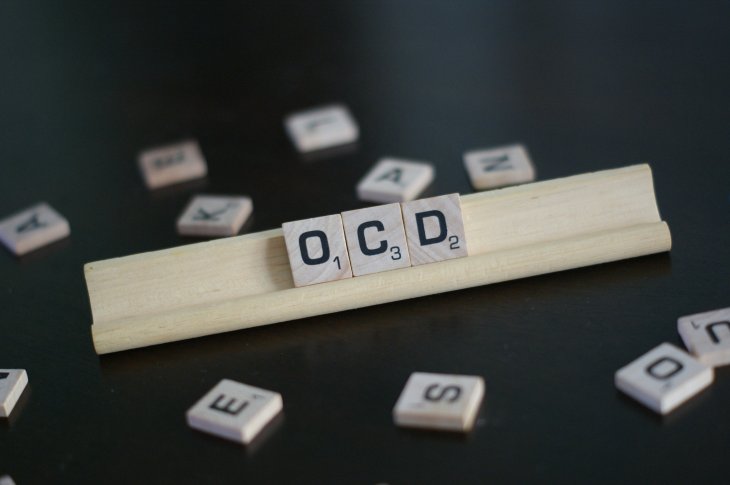Flick the light on, flick the light off, flick the light on again.
Pause.
Flick the light off.
The pause was wrong, something bad might happen.
Start again.
A feeling many OCD sufferers face daily.
For Rose Gibson* symptoms of OCD started when she was 12.
Rose said: “If I touched something, brushed past something, or felt like I’d gone too close to something I would have to wash them or I thought I would pass a disease on to my family.
“That probably lasted for months, if not years, until my hands were dry and sore I would wash them.”
Obsessive Compulsive Disorder is a mental health condition where a person has obsessive thoughts and compulsive behaviours.
Compulsions are repetitive behaviour or mental acts which you feel you need to do to temporarily relieve the unpleasant feelings brought on by the obsessive thought.
For Rose, OCD played a huge role in her life growing up.
She said: “I think it sucked a lot of happiness out of good memories because no one around me knew it but I was obsessing over everything, what I said, did, how I felt.
She’s not alone.
Over a million people suffer with OCD in the UK.
And director at the International OCD Foundation, Elizabeth McIngvale, says it affects people suffering with the disorder in different ways.
She said: “OCD is a diagnosable mental health condition that is made of two things, which are unwanted intrusive thoughts, and compulsions, which are repetitive rituals that are done in an effort to get rid of intrusive thoughts.
“Individuals don’t find pleasure in their compulsions and these actions become a disorder when it is disruptive to a person’s life- taking up more than one hour of their day.”
Misconceptions and stereotypes around the condition – such as excessive cleanliness and liking things in order – prevent many people from getting the help they need.
People like Rose.
Rose said: “If I knew that OCD wasn’t the Monica Geller clean-freak, but a horrific and paralysing mental disorder which has the power to convince you of basically anything, I would probably have about 10 years of my life which weren’t spent suffering in silence from it.”
Social media influencer, Flipped Lid OCD, otherwise known as Amy Hanvey, runs a successful instagram page with nearly 3,000 followers and a website under the same name.
She said: “Misconceptions about the disorder are why people aren’t getting the help they need. I knew from the moment I got diagnosed I needed to advocate for what real OCD is.”
OCD in TV and media can increase the misconceptions around OCD as well, with Khloe Kardashian coining the term KHLO-C-D to refer to the fact she likes things organised.
Kardashian even launched an app under the same name to share ‘lazy-girl hacks for cleaning everyday objects.’
Critics have asked Khloe to have a productive conversation about the misuse of the term OCD, rather than attacking her.
McIngvale said: “The biggest myth about OCD is that it’s not an adjective.
“Khloe Kardashian putting her cookie jar in a certain way is not OCD because she enjoys doing that, OCD is disruptive and disturbing. It’s unwanted and individuals don’t like it.”
Media and TV portrayals of OCD can also make symptoms of the condition worse for those who suffer with it.
Rose said: “When you have a continued perception of OCD perpetuated by TV and film and phrases ‘I’m so OCD’, which is so far from the truth, which simplifies it and makes it appear trivial, it just adds to the uncertainty you already go through daily.”
Intrusive thoughts as a symptom of OCD can cause severe distress for those with the condition, even though they would never act on this line of thinking.
Violent obsession is one form of intrusive thought – in that people fear they are going to hurt someone or be hurt.
Sexual obsessions is another form of OCD in which people fear that they will act on sexual-related impulses or fear performing sexually aggressive impulses towards others.
Religious/ Moral obsessions also encompass what OCD sufferers may face, in which people with the condition fear God/damnation or have obsessive worries about what is right and wrong.
McIngvale said: “OCD is opportunistic. We know it shows up in the area of peoples lives that matter the most to them, like in their faith or in their moral compass.
“These individuals have no intention, no history of harming themselves or others, these are unwanted intrusive thoughts.”
The disorder is predominantly treated with behavioural interventions, medication, or a combination of the two.
OCD is the only neuro-psychiatric condition which still has a licensed invasive surgical procedure used to treat it which can be used in the most severe cases.
Greater Manchester Mental Health NHS Foundation Trust is currently running a trial on the effects of a new ‘investigational’ drug, Troriluzole, which treats symptoms of OCD.
The trial was awarded highly at the NIHR Health & Care Research Awards 2023 with participants travelling hundreds of miles for the drug.
Senior Doctor on the trial Oliver Edge said: “We have someone coming from Scotland every three months, because they’ve found that the medication has been beneficial for them.
“And they describe themselves being better than they’ve ever been with their symptoms since they began.”
Treatment can vary in every patient, often those suffering with the disorder have to challenge or expose themselves to their intrusive thoughts in order to overcome the condition.
In severe cases antidepressants can be prescribed to reduce the possibility of relapse of compulsive behaviours.
And whilst OCD is being discussed in the media, a huge problem in diagnosis comes from people being too ashamed to seek help for their intrusive thoughts.
Edge continued: “I also think the biggest struggle I’ve encountered, and I think, in my experience that people speak with me about is, when they’ve got intrusive thoughts, they’re not inline with the person’s core values.
“Often, they’re attached with a great degree of shame, and guilt. And it prevents people from seeking that combined with the stigma attached to it prevents people seeking care.”
Support for the condition comes not only from professionals but from loved ones and family members as well.
Michelle Daubney’s son, Jack Robinson, has suffered with OCD since a young age and was officially diagnosed when he was six.
She said: “It was really hard to support my son. He wouldn’t step on cracks in the pavement and when he did he believed he caused natural disasters in the local area.
“We got help and support from CAMHS and after speaking to a specialist I was told not to give in to his irrational fears in order to support him.
“This often caused a meltdown but ultimately there was no negative consequence and the more I did that the more it showed him something bad wasn’t going to happen.”
The reality of a disease which impacts around 1.2% of people in the UK, is that it can be incredibly severe and debilitating for sufferers.
“OCD is more than needing things to be in a certain place, or rooms to be clean. It is about continually questioning everything you do, how you breathe, how you move, what were your reactions (both mental and physical), why you did or said a certain thing.
“It’s about painstakingly going over every minute detail in your head, or not being able to stop doing things like washing your hands, or tapping a light switch until you’ve turned it on and off just enough times that something bad isn’t going to happen,” Rose said.
For those struggling with the disorder, OCD UK and OCD Action offer online support.
*Name changed to protect the identity of the source.
Featured image courtesy of Airpix on Flickr.




Join the discussion
Thank you for the well written and informative article